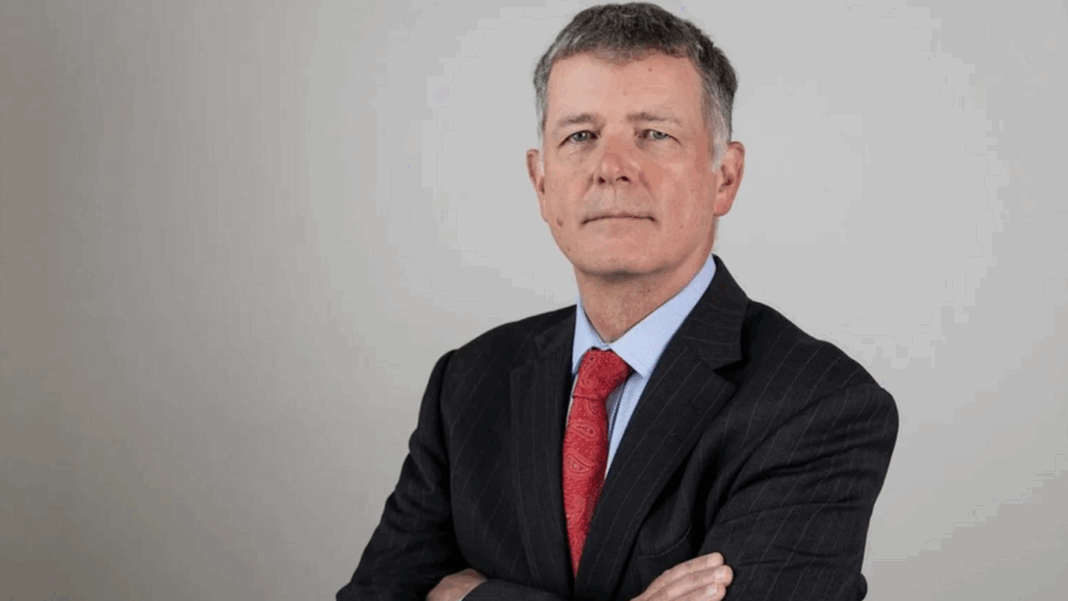Al-Monitor, september 22, 2025
Straddling two continents and once the seat of successive empires, Istanbul — with its exotic allure and heady vistas — has long been a favorite haven for assorted spies, inspiring countless novels and movies, including the James Bond thriller « From Russia with Love. »
It was thus fitting, one might surmise, that Sir Richard Moore, the outgoing head of the UK’s national spy agency, MI6, and a self-avowed Turcophile, would select the city to deliver his farewell speech during a press conference there. His Turkish hosts were surely delighted by the reason Moore, who previously served as the UK ambassador to Turkey, proffered. “Turkey is a nation of pivotal importance to the international system. On almost all of the issues that I have grappled with as chief of MI6,” Moore told his audience in flawless Turkish, “Turkey has been a key player.” These included the conflict in Syria and Russia’s ongoing war against Ukraine.
However, Moore’s subsequent call in English for “those men and women in Russia who have truths to share and the courage to share them” to contact MI6 through its new and secure dark web portal, Silent Courier, triggered howls of indignation. “For Turkey to have been unaware of the substance of Moore’s public comments was a scandal,” fumed Barcin Yinanc, a veteran diplomatic observer. The possibility that it was aware and had approved them “is another scandal,” she added.
Moore delivered his Sept. 19 speech, blasting Russian President Vladimir Putin and “his lack of concern for human life,” at the British Consulate in Istanbul’s historic Pera district, just a stone’s throw from the Russian Consulate.
The Kremlin has yet to comment on Moore’s salvoes, which place Turkey in a highly delicate position only days before Turkey’s president, Recep Tayyip Erdogan, is to meet with President Donald Trump at the White House on Sept. 25.
The choice of Istanbul to launch his spy recruitment drive was an embarrassing humiliation for Turkey, Namik Tan, a former Turkish ambassador to Washington and shadow foreign minister for the main opposition Republican People’s Party, told Al-Monitor. “It shows the extent to which Ankara is locked in Britain’s embrace,” Tan said.
“Moore knows Turkey and the sensitivities around Russia well enough to foresee the consequences of his words,” Alper Coskun, another former Turkish ambassador and senior fellow at the Carnegie Endowment for International Peace, noted. “He was acting deliberately. »
“The most generous interpretation is that Ankara knew what he was going to say and was somehow seeking to communicate a message to Russia, but given the government’s efforts to keep relations with Moscow on a steady keel, this is highly unlikely,” Coskun told Al-Monitor.
According to British press reports, Moore tops the list of candidates to be tapped as the UK’s next ambassador to Washington following the sacking of Lord Peter Mandelson over his links to convicted pedophile Jeffrey Epstein.
Since Russia’s February 2022 assault on Ukraine, Turkey — a NATO member — has sought to strike a balance between its treaty commitments and its deep and complex ties with Russia, which lies across the Black Sea. Hence, while blocking the passage of Russian naval ships through the Bosporus and the Dardanelles, Ankara is both a top consumer of and facilitator for onward export to Europe of Russian natural gas. European imports via Turkey are rising even as the EU seeks to reduce its dependency on Russian gas.
Ties between the historical frenemies are best understood as “strategic ambivalence” shaped by “pragmatic calculations, mutual recognition of regional influence and a shared disposition toward adaptive opportunism,” Turkish academics A. Erdi Ozturk and Eda Ayaydin said in a recent London School of Economics blog post. Moreover, “Growing authoritarianism in Turkey and autocracy in Russia facilitate a form of cooperation that often proves easier than Ankara’s alignment with Western liberal states,” the authors wrote.
Turkey’s policy of strategic ambiguity is nothing new.
“Turkey employed elaborate strategies to collaborate with Britain and France in WWII without actually joining the war,” Jenny White, a social anthropologist specializing in Turkey and the author of the Kamil Pasha spy thriller series set in Istanbul, said.
“This liminality allowed spies of every persuasion to keep an eye on each other in Istanbul’s cafes and restaurants. These places are now full of Russians who might be recruited by a modern British spy, putting Turkey in the awkward position of being in NATO while trying to stay out of trouble,” White told Al-Monitor.
Britain is among Turkey’s closest European allies and, as Moore explained, has cooperated closely on a plethora of issues. In his speech, Moore recalled that his government had “forged a relationship with HTS a year or two before they toppled Bashar [al-Assad]” and “forged a path for the UK government to return to the country within weeks.”
Moore was referring to Hayat Tahrir al-Sham, the al-Qaeda offshoot headquartered in Syria’s northern province of Idlib that was run by Ahmed al-Sharaa until he overthrew Assad in December and declared himself president. Syria’s Kurds have long accused Britain of being one of Sharaa’s chief enablers, together with Turkey.
« They planned Assad’s fall together, » Salih Muslim, a veteran Syrian Kurdish politician, told Al-Monitor in a recent interview. True or not, his majesty’s top spook would be happy to take credit it would seem.

